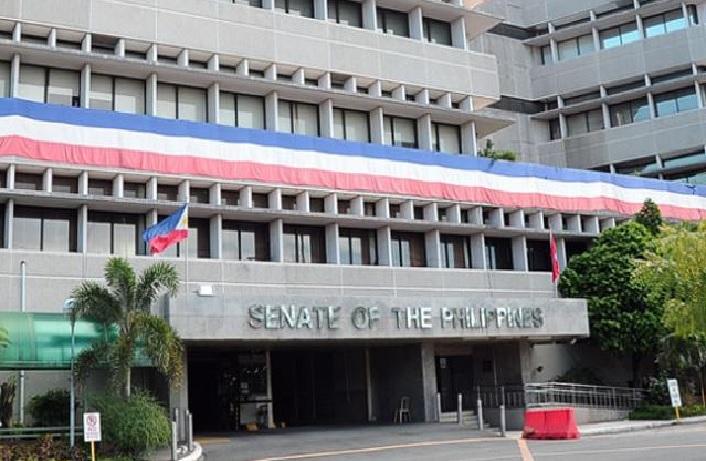Bill expanding VAT for foreign streaming platforms reaches Senate floor

The bill seeking to expand the coverage of value-added tax (VAT) to non-resident digital service providers (DSP) is now up for Senate plenary debates.
This, after Senate ways and means committee chairman Sherwin Gatchalian sponsored Committee Report 189 under Senate Bill 2528 during the plenary session on Tuesday.
Gatchalian explained that the current Tax Code provides for the sale of services performed in the Philippines, including digital service providers, whether resident or non-resident.
However, the lawmaker said the ambiguity in the law hinders the government from collecting taxes from non-resident digital service providers.
He cited as an example the imposition of VAT to local streaming platforms like iWantTFC and Vivamax and the failure to collect the 12-percent VAT from similar foreign platforms like Netflix and HBO Go.
This, he said, generates an imbalance between domestic and foreign service providers and places local businesses at a disadvantage.
This situation also hampers the government's ability to adequately collect taxes from the growing digital economy, he added.
According to the estimates of the Department of Finance which they presented in the 2024 Economic Outlook Briefing, implementing VAT on digital service providers has the potential to generate an additional P83.3 billion from 2024 to 2028.
"This underscores the need for legislation that will clarify that digital services provided for by nonresident digital service providers are subject to VAT in the Philippines if it is consumed within our borders," Gatchalian said.
Under SB 2528, the VAT liability of nonresident digital service providers on the sale, exchange, or barter of digital services consumed in the Philippines will be clarified and will enable the Bureau of Internal Revenue to impose and collect VAT on digital services and transactions.
It will clearly define the terms "digital service," "digital service provider," and "non-resident digital service provider."
The proposed measure will likewise require all digital service providers, resident or not, to assess, collect, and remit VAT on digital services that are consumed in the Philippines, subject to rules on withholding of VAT.
A VAT-registered non-resident digital service provider will be liable to remit the VAT on digital services that are consumed in the Philippines if the consumer is non-VAT registered.
With this, Gatchalian said the direct consumers will not be obliged to go to the BIR to pay VAT.
For business-to-business transactions, the reverse charge mechanism will apply if a VAT-registered resident corporation buys materials from a non-resident digital service provider.
Further, the bill mandates the VAT-registered non-resident digital service providers to issue digital sales or commercial invoices for the sale of all digital services consumed in the Philippines with simplified requirements.
SB 2528 also empowers the BIR commissioner with the ability to block or suspend the digital services of digital service providers that will be found in violation of the VAT provisions.
The Department of Information and Communications Technology and the National Telecommunications Commission will be tapped for the implementation of this provision.
Meanwhile, the bill will keep the exemption from VAT of online educational services, including online courses, seminars, and training by accredited private or government educational institutions, as well as the sales of online subscription-based services to government educational institutions like the Department of Education, Commission on Higher Education, and TESDA, among others.
Lastly, SB 2528 includes a provision on the deemed supplier rule wherein non-resident digital service providers that are classified as online marketplace or e-marketplace are required to withhold and remit VAT on transactions that go through its platforms.
Gatchalian said this provision is applicable when the seller is non-resident and the buyer is in the Philippines.
"With these provisions, our ultimate objective is clear: We are committed to paving the way for a level playing field. We believe in the importance of creating an environment where our digital service providers, whether they are nonresident or local, operate under fair and square tax policies," Gatchalian said. —VAL, GMA Integrated News




